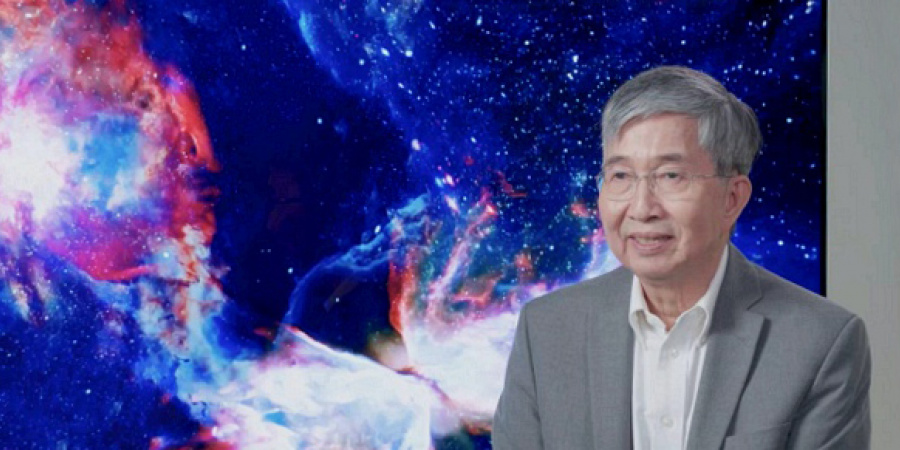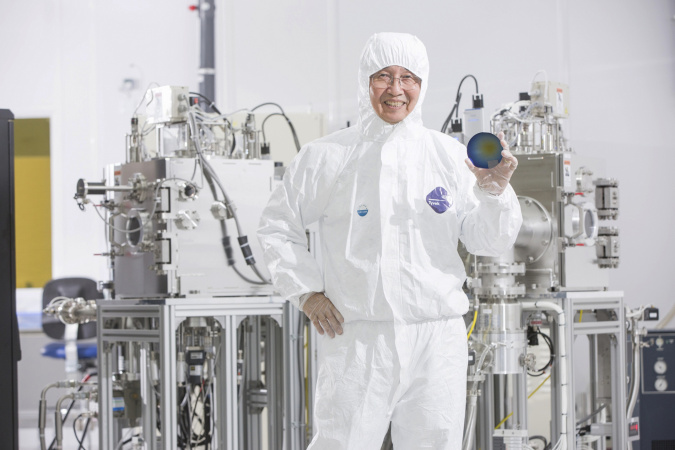IAS Bank of East Asia Professor TANG Ching-Wan Awarded 2019 Kyoto Prize in Advanced Technology
The Inamori Foundation, Kyoto, Japan announced today Prof. TANG Ching-Wan, IAS Bank of East Asia Professor of The Hong Kong University of Science and Technology, is the recipient of the 2019 Kyoto Prize in Advanced Technology.
Prof. Tang is honored for his pioneering work on organic electronics, including the invention of OLED - Organic Light Emitting Diode. He is a Hong Kong native and the first person of Chinese descent to win the Kyoto Prize since it was established in 1985.
The Kyoto Prize is awarded by the Inamori Foundation annually to individuals who have made global achievements in the categories of Advanced Technology, Basic Sciences, and Arts and Philosophy. Each laureate will receive a diploma, a 20K gold Kyoto Prize medal, and a prize money of 100 million yen. The formal award ceremony will be held on Nov 10, 2019 in Kyoto, Japan.
"I am deeply honored by the recognition given to me by the Inamori Foundation,” said Prof. Tang. “To a scientist, there is no greater satisfaction than coming up with an invention that leads to practical use by billions of people around the world in every single day. I feel very fortunate that I have contributed to the creation of a new display technology. I must also say every time when I Skyped with my grandchildren on my cellphone, I enjoyed seeing their most beautiful faces - on an OLED screen."
"It’s thrilling to learn that Ching has won the Kyoto Prize,” said Prof. Henry TYE, Acting Director of the HKUST Jockey Club Institute for Advanced Study (IAS). “Ching is one of the few researchers who can cross-cut multiple scientific and engineering disciplines to turn an invention into practical technology. His ground-breaking work on OLED has not only impacted the scientific front by creating the field of organic electronics, but also greatly benefited our society with a multi-billion-dollar OLED display industry."
"Ching is a highly talented scientist and engineer and has made fundamental contributions to the development of organic electronics,” said Prof. Tim CHENG, Dean of the School of Engineering. “His invention of OLED is a synthesis of materials and device research by an individual who has the keen ability to explore new boundaries and seek practical solutions. Who would have believed the most beautiful TVs today are made with molecules stacked in various layers to emit light efficiently? Ching first made it happen, and it seems so obvious after the fact."
At HKUST, Prof. Tang held joint appointments as Chair Professor of Electronic and Computer Engineering, Chair Professor of Chemistry, and Chair Professor of Physics, in addition to his appointment at the IAS.
Prof. Tang obtained his BS from the University of British Columbia and PhD from Cornell University, both in Chemistry. His career as a research scientist began in 1975 when he joined the Kodak Research Laboratories in Rochester, NY, where he made several major discoveries – the bilayer heterojunction structure and it applications in organic solar cells and organic light emitting diodes. They culminated in the publication of three milestone papers in 1986-89. His pioneering work on OLED led to the development a new flat-panel display technology – OLED displays – adopted widely in today’s smartphones, tablets, and televisions. He is known as "the father of OLED".
Prof. Tang was appointed the Doris Johns Cherry Professor of Chemical Engineering, University of Rochester, after leaving Eastman Kodak in 2006. He returned to Hong Kong to join HKUST IAS in 2014 and has since been a member of the current State Key Laboratory on Advanced Displays and Optoelectronics Technologies at HKUST. He remains a Professor of Chemical Engineering, Emeritus, at the University of Rochester.
His research group at HKUST is focused on developing high-performance OLED materials and devices as well as alternative OLED fabrication processes aiming at manufacturing cost reduction. “We are always in the search for better solutions to take OLED technology to the next level, while looking out for the next breakthroughs,” said Prof. Tang.
Prof. Tang has received numerous awards, including the 2011 Wolf Prize in Chemistry, and more recently, the 2017 Jun-ichi Nishizawa Medal from IEEE and the 2018 C&C Prize from NEC C&C Foundation. He was inducted to the US National Inventors Hall of Fame in 2018.
Prof. Tang is a member of the US National Academy of Engineering, a founding member of the Hong Kong Academy of Sciences, and a fellow of Hong Kong Academy of Engineering Sciences. He is also a fellow of the American Physical Society and a fellow of the Society for Information Display.
(This news was originally published on the HKUST Jockey Club Institute for Advanced Study website.)


